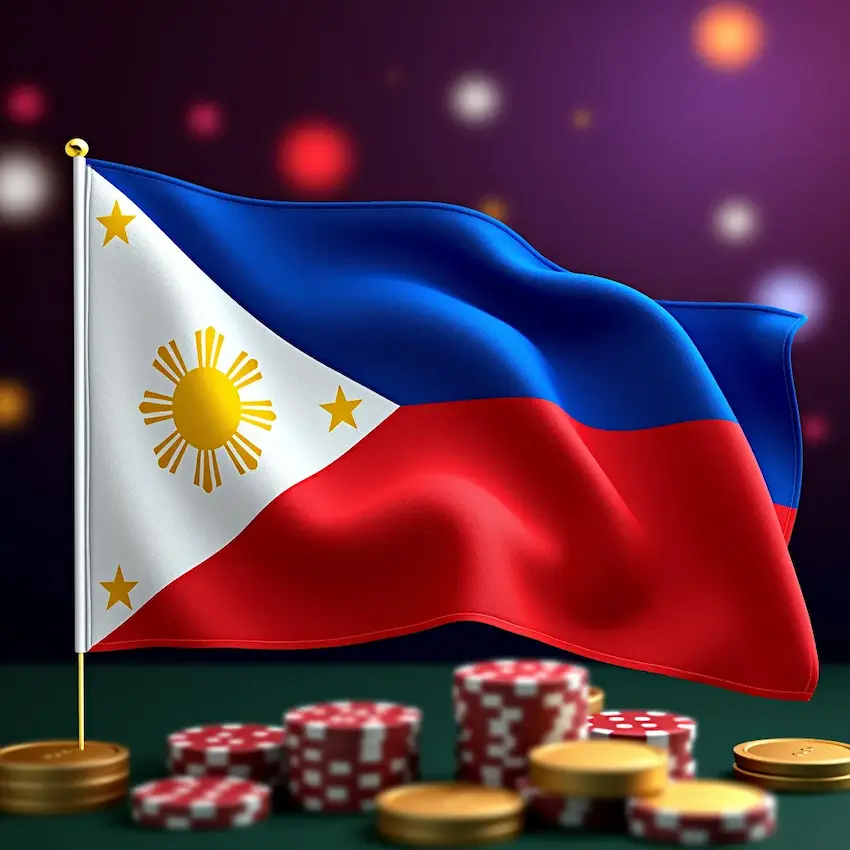
GCash Embraces Crypto Revolution
USDC Integration Opens New Financial Doors for Filipinos In a groundbreaking move that signals the…

Imagine walking through the bustling streets of Makati or Bonifacio Global City and overhearing conversations about Bitcoin slots or Ethereum poker tables. That’s not science fiction anymore, it’s the reality of modern Philippines.Sa totoo lang, we Filipinos have always loved a good sugal (bet). From sabong (cockfighting) to jueteng, gambling runs deep in our cultural DNA. But now, there’s a new player in town that’s changing everything: cryptocurrency gambling.The numbers don’t lie. According to YouGov, 52% of Filipinos now own cryptocurrencies in 2024 – up from 45% last year. And with PAGCOR reporting a staggering 24.6% increase in gambling revenue, reaching ₱410 billion in 2024, it’s clear that our appetite for both crypto and gambling is growing simultaneously.But what’s driving this surge? Why are more kabayans turning to crypto casinos? And most importantly – is it safe, legal, and worth your time?
Based on my conversations with dozens of Filipino crypto gamblers and personal testing, these platforms offer the best experience for our market:
Remember the Axie Infinity craze during the pandemic? Nakakamiss din, ‘di ba? That play-to-earn phenomenon wasn’t just a passing trend—it was our national introduction to cryptocurrency’s earning potential.”Axie Infinity in the Philippines became a lifeline for thousands of gamers looking to earn income through play-to-earn mechanics,” reported Multipolitan. What started as a way to earn extra income during lockdowns evolved into something bigger.Take my kumpare Carlo from Tondo. He started with Axie in 2020, earned enough to buy more crypto, and now regularly plays Bitcoin blackjack on weekends. “Mas maganda ang crypto kasi instant withdrawal, walang pakialam ang BIR, at global ang laro,” he told me last month over San Miguel beers.This pattern repeats across the country—from call center agents in Cebu using their night shift breaks to play crypto poker, to jeepney drivers in Manila betting small amounts of crypto during traffic lulls.
Here’s something to make you proud: the Philippines now ranks 20th globally for crypto wealth concentration. The average Filipino crypto owner holds approximately ₱790,000 (around $14,194) in digital assets.While we’re still behind Singapore (5th globally with $85,536 per owner) and Malaysia (18th with $20,895), we’re building significant crypto wealth as a nation. This increased financial capacity has naturally spilled over into the gambling sector.
Alam mo ba that the Philippine Securities and Exchange Commission (SEC) has been tightening its grip on crypto platforms? The recent moves to restrict Binance and even remove it from Google and Apple stores signal a new regulatory era.But here’s what’s interesting—while clamping down on unregistered exchanges, the Philippines is simultaneously creating frameworks for legitimate crypto gambling operations.
PAGCOR’s latest regulatory updates have clearly defined permitted gaming activities, including:
While there’s no explicit mention of cryptocurrency gambling rules, the new framework is opening doors for offshore crypto platforms to obtain proper licensing in the Philippines.This creates a fascinating dichotomy: stricter enforcement against unauthorized platforms while creating pathways for legitimate crypto gambling operations.
Diskarte is essential when gambling with crypto. Here are some approaches that work well in our context:
Not everything is sunshine and rainbows. The recent scandal involving an ex-Philippine mayor linked to a $30 million AAX crypto scam serves as a stark reminder of the risks.In another troubling incident, authorities arrested 99 individuals in a raid on a Chinese-run crypto scam center operating in the Philippines.
Our cultural value of “ingat” (being careful) applies doubly to crypto gambling:
The Bangko Sentral ng Pilipinas (BSP) recently completed its Central Bank Digital Currency (CBDC) trial, focusing on wholesale tokens. This could eventually create a regulated digital currency option for gambling.Imagine placing bets using a digital peso backed by the BSP—combining the convenience of crypto with the stability of our national currency.
The debut of PHPC stablecoin on the Ronin sidechain is another game-changer. A peso-pegged stablecoin could become the preferred currency for Filipino gamblers seeking to avoid both crypto volatility and peso inflation.
The rise of crypto gambling in the Philippines represents both tremendous opportunity and significant responsibility. As we embrace this technology, we must do so with the same values that define us as Filipinos – bayanihan (community spirit), diskarte (resourcefulness), and malasakit (compassion).Whether you’re a seasoned crypto gambler or curious about making your first bet, remember that responsible gambling practices are essential. Set limits, know when to stop, and treat crypto gambling as entertainment rather than a primary income source.Are you already exploring crypto gambling platforms? Have questions about getting started safely? Share your experiences or reach out for guidance – our community grows stronger when we share knowledge.